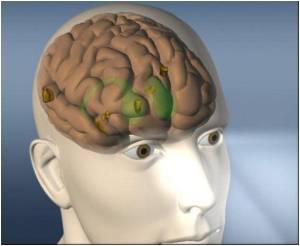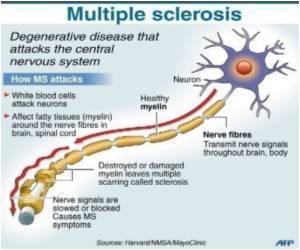
The researchers focused on microglial cells, specialized immune cells that reside in the brain and spinal cord. Infections stimulate microglia to produce signaling molecules, called cytokines, which spur a cascade of chemical changes in the brain.
Some of these signaling molecules, the inflammatory cytokines, induce "sickness behavior": the sleepiness, loss of appetite, memory deficits and depressive behaviors that often accompany illness.
Inflammation in the brain also appears to be a key contributor to age-related memory problems, said University of Illinois animal sciences professor Rodney Johnson, who led the new study. Johnson directs the Division of Nutritional Sciences at Illinois.
"We found previously that during normal aging, microglial cells become dysregulated and begin producing excessive levels of inflammatory cytokines. We think this contributes to cognitive aging and is a predisposing factor for the development of neurodegenerative diseases," he said.
The researchers showed that microglial cells that were exposed to a bacterial toxin produced inflammatory cytokines that could kill neurons. When the microglia were exposed to luteolin before they encountered the toxin, however, the neurons lived.
Advertisement
Exposing only the neurons to luteolin before the experiment had no effect on their survival, the researchers found.
Advertisement
The researchers next turned their attention to the effects of luteolin on the brains and behavior of adult (3- to 6-month-old) and aged (2-year-old) mice.
The mice were fed a control diet or a luteolin-supplemented diet for four weeks. The researchers assessed their spatial memory and measured levels of inflammatory markers in the hippocampus, a brain region that is important to memory and spatial awareness.
Normally, aged mice have higher levels of inflammatory molecules in the hippocampus and are more impaired on memory tests than younger adult mice.
Aged mice on the luteolin-supplemented diet, however, did better on the learning and memory task than their peers, and the levels of inflammatory cytokines in their brains were more like those of the younger adult mice.
"When we provided the old mice luteolin in the diet it reduced inflammation in the brain and at the same time restored working memory to what was seen in young cohorts," Johnson said.
The new study appears in the Journal of Nutrition.
Source-ANI















